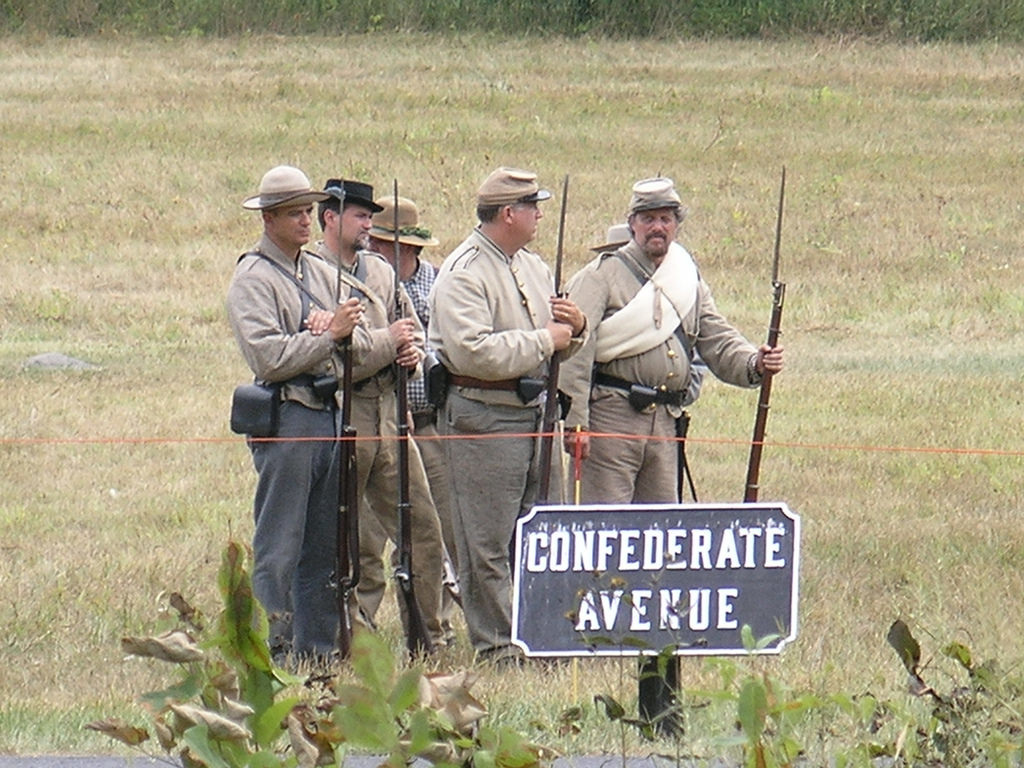| GETTYSBURG, PA. — For me, the enormity of what happened here hit home on the solemn drive down from the hill known as Little Round Top into a boulder-filled ridge called Devil’s Den. Here, an estimated 2,600 lay dead or wounded on July 2, 1863, the second day of fighting in the battle of Gettysburg, which coincided exactly with the date my family and I visited. Monuments to soldiers line the road. Tourists, mainly families with children who may not comprehend what happened here, either stare solemnly through car windows or walk the road |
| | and read inscriptions. Their lives, the America they now experience, would be so different had the battle ended differently. Devil’s Den is but one spot in Gettysburg where reminders of war’s terrific toll are everywhere. Few places in America bring the consequences of an inability to solve differences home this starkly. Even 153 later, it causes you to flinch. Gettysburg, the town, has never recovered, if “recovered” means regaining what was before the battle. A once bucolic little town is still, a century and a half later, dominated by the battle, the thousands who died there and the presidential address that followed. Its downtown is choked by battle-related shops and restaurants and by people offering ghost tours to haunted areas. Mass death breeds fans of the occult. Even a primly dressed re-enactor eager to show the many layers of her 1860s-era dress confides she has seen distant lanterns at night, moving through the hills without humans attached. But Gettysburg also is about turning points. A victory might have given the South what it needed to force the Union to negotiate peace. But its decisive loss instead was the beginning of the end for the rebellion. The question for modern Americans, now engaged in a struggle most people experience only vaguely, ought to be when the turning point will come in the war on terror. Was it the recent recapture of the city of Fallujah from the hands of ISIS? Or did the attack at a Turkish airport signal a turning point of a different kind? Have we yet to see it? Will generations yet unborn visit monuments to a long gone war in Orlando, San Bernardino and at ground zero in Manhattan? If so, how will the end look? Where will be the USS Missouri or the Appomattox Courthouse that ends this war? And if a group such as ISIS signs a surrender, however far-fetched that seems, what would prevent another from forming to make its grievances known through terror the next day? The truth is the struggle against terrorism is not new. Only this generation has chosen to call it a war — a necessity, perhaps, of the scale of death modern technology has made possible. A century ago, the terror alert was high, even if the Department of Homeland Security didn’t exist. Enemies, mostly self-identified as anarchists, lurked in our ancestor’s shadows. When one of them killed President William McKinley in 1901, sympathizers applauded, an anguished majority was outraged and Congress called for tougher laws. But in the years that followed, bombs were detonated in several U.S. cities and police seemed helpless. A few years ago, the Economist published a report on those days, and on the many like-minded groups that eventually evolved. It concluded that they withered finally, but only because more conventional wars came to dominate the century. That was hardly a good alternative. Several days after visiting Gettysburg, I sat in an airport terminal listening to a recorded voice explain the need to be vigilant about unattended bags or people asking you to carry things for them. “We appreciate your cooperation during these times of heightened security awareness,” the voice said. The implication was that these “heightened” times will end, that they are merely extraordinary, something that causes temporary hardships. Perhaps an end will come. But among Gettysburg’s many lessons is that war, while it settles some conflicts, changes the world in unpredictable, and permanent, ways. Every change we allow to our way of life, from extra airport security to increased surveillance and secret drone warfare, is not likely to return to how it once was. |


 RSS Feed
RSS Feed

